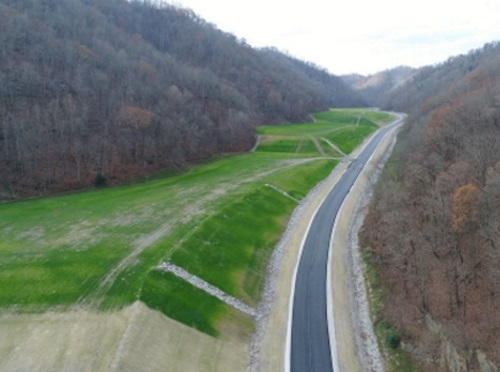The Kentucky Transportation Cabinet is gearing up to control the growth of noxious and nuisance weeds along roadsides throughout the state starting in April.
[Above photo by the KYTC]
KYTC is targeting targets 11 noxious weeds with this effort: Johnson grass, giant foxtail, Canada thistle, nodding thistle, common teasel, multiflora rose, Amur honeysuckle, poison hemlock, marestail, Japanese knotweed, and kudzu.
KYTC added that local property owners may file a request that highway crews treat select nuisance weeds found on adjacent state-owned rights of way as well. To request weed treatment request submit a written application to the local KYTC highway district office, the agency added.
“Weeds are more than a nuisance-they pose safety concerns,” explained KYTC Secretary Jim Gray in a statement.
“Actively treating the weeds on state-maintained property enhances driver visibility near roadways, prevents damage to ditches and drains, and minimizes the presence of plants that attract deer near highways,” he said.
Noxious weeds often invade and destroy the roadside turf grass, leaving those areas vulnerable to erosion, KYTC added. They can also smother native plants through rapid reproduction and long-term persistence.
Twenty years ago, the Federal Highway Administration published a compendium of resources aimed at removing invasive species of plants that might take root along roadways nationwide. They can cause “significant changes” to local ecosystems, upsetting ecological balances and causing economic harm to the country’s agricultural and recreational sectors.

